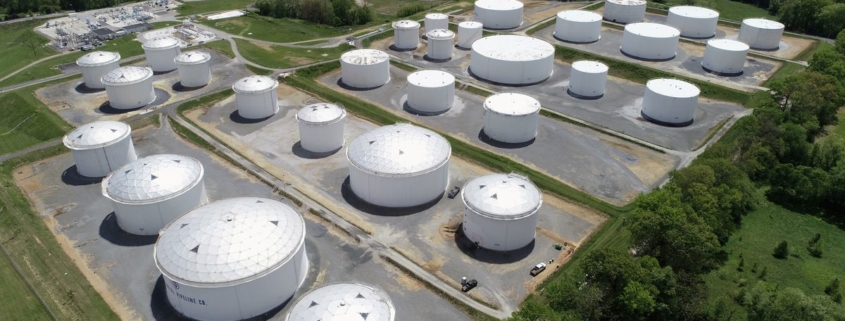U.S. to require energy pipelines report computer hacks or face fines
Holding tanks are seen in an aerial photograph at Colonial Pipeline’s Dorsey Junction Station in Woodbine, Maryland, U.S. May 10, 2021. REUTERS/Drone Base/File Photo
Energy pipeline companies will have to report cybersecurity incidents to the U.S. government under a new directive that will be announced by the Transportation Security Administration (TSA) on Thursday, senior government officials said.
The officials, who asked to remain unidentified, said the directive will impose fines on pipeline companies that fail to report incidents within 12 hours and mandate that the pipeline companies designated a cybersecurity coordinator to report incidents and coordinate with the Department of Homeland Security’s Cybersecurity and Infrastructure Security Agency (CISA).
“This is the first time there’s mandatory reporting of cybersecurity incidents,” said one of the four senior officials that spoke to journalists ahead of the directive’s unveiling.
The new directive comes after hackers earlier this month carried out a ransomware attack on the Colonial Pipeline Co (COLPI.UL), the United States’ biggest fuel pipeline system, that caused supply disruptions, price spikes and panic buying across the East Coast earlier this month. read more
The directive was first reported by The Washington Post earlier this week.
The hackers, alleged to be operating out of Russia, held Colonial Pipeline’s computer network hostage and successfully extorted millions of dollars in digital currency. The incident has bumped the cybersecurity of critical infrastructure to the top of the national agenda.
The U.S. government has traditionally relied on private industry to flag hacks to officials, but is shifting toward mandatory reporting amid a number of major intrusions.
Similar mandates might appear in other industries. Speaking Wednesday, the officials said the new pipeline mandate is being eyed as a potential model for other sectors as well.
Our Standards: The Thomson Reuters Trust Principles.


